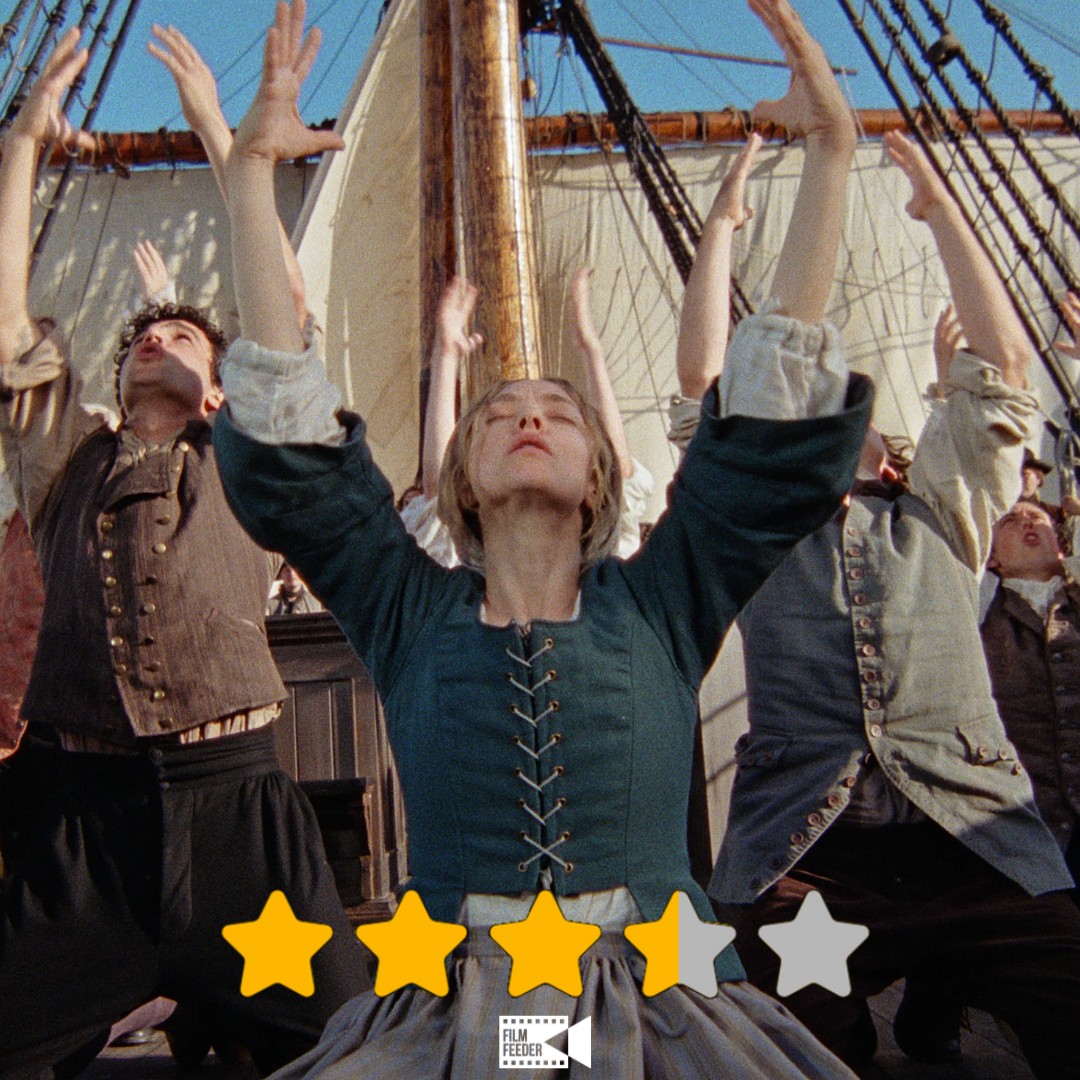
Lollipop (dir. Daisy-May Hudson)
Certificate: 15
Running Time: 100 mins
UK Distributor: MetFilm Distribution
UK Release Date: 13 June 2025
WHO’S IN LOLLIPOP?
Posy Sterling, Idil Ahmed, TerriAnn Cousins, Aliyah Abdi, Tegan-Mia Stanley Rhoads, Luke Howitt, Johanna Allitt, Brenda Birungi, Mandy Ogunmokun
WHO’S BEHIND THE CAMERA?
Daisy-May Hudson (director, writer), Cecilia Frugiuele and Olivier Kaempfer (producers), James William Blades (composer), Jaime Ackroyd (cinematographer), Lee Mckarkiel (editor)
WHAT’S IT ABOUT?
A recently-paroled mother (Sterling) attempts to regain custody of her children…
WHAT ARE MY THOUGHTS ON LOLLIPOP?
The last thing you’d expect a hard-hitting drama about a woman going up against the foster system to be is joyful, and yet Lollipop, from writer-director Daisy-May Hudson, is exactly the kind of unexpected dopamine booster a film like this needs.
Though the subject matter is prime material for the likes of Ken Loach, Andrea Arnold, Sean Baker and other filmmakers who tend to shed a light on the marginalised, Hudson bucks most trends by keeping her film and its often-harrowing themes from sinking into the depths of despair. As one of her own characters puts it, they can take anything they want but they cannot allow their joy to be tarnished, and Hudson leans into that sentiment with impressive naturalistic flair as well as a profound sense of humanity.
Lollipop begins as its protagonist, Molly (Posy Sterling), is released from prison after a four-month term, and all she wants is to be swiftly reunited with her young children, Ava (Tegan-Mia Stanley Rhoads) and Leo (Luke Howitt), despite only having a tent for accommodation. However, she quickly learns that the children have been placed into foster care against her wishes, due to their original guardian, Molly’s alcoholic mother Sylvie (TerriAnn Cousins), gave them up as an extension of her own monstrous self-absorption, leaving Molly stuck with supervised visitation while constantly being stonewalled by the vicious loopholes inflicted by the unjust system. When things go from bad to worse, Molly finds solace in her old friend Amina (Idil Ahmed), whose own issues with homelessness paint a wider picture of how broken the overall system is.
But unlike Loach or Arnold or even Baker, Hudson wisely refrains from a black-and-white perspective of the situation. The filmmaker often inserts slap-bang in the middle of some heavy drama a few key moments of even-handed compassion where some of the more antagonistic figures, be they a blunt solicitor or a stingy landlord, are allowed to actually be people with their own grievances or tokens of optimism. Some, like a particularly snotty social worker who suddenly cuts a supervised session short because she needs to use the bathroom, are given the straightforward villain treatment, but by and large Hudson succeeds at giving her characters enough space to be more than just their designated types, ensuring that her story feels even more real and expansive than if this was just a simple good-vs-evil story.
The naturalism that Hudson brings to her narrative is vital to its level of joy seeping out and infecting the viewer, as it avoids feeling like an overly melodramatic construct and more like something you’d actually expect people to express in the moment. Hudson’s documentary background, having previously filmed her own experiences with homelessness in her debut feature Half Way, guides the filmmaker as she depicts characters having conversations that are delivered and structured as though there’s no camera there at all, so whenever they express joy in their own way – especially after some utterly heart-breaking public meltdowns – its hits you all the more in the feels, because you know it’s coming from a much more personal and natural place rather than what’s written down in the script. The actors are especially effective in conveying that naturalistic feeling, with Posy Sterling giving an absolutely astounding lead performance that’s packed to the brim with liveliness and purebred emotion, matched evenly by Idil Ahmed whose warmth and compassion could power entire cities – and is all the more impressive when you learn that this is Ahmed’s first-ever acting role.
Occasionally, the film will dip its toes into more conventional waters, but only for a fleeting moment or two before pulling its feet away entirely. There are some sequences, particularly where Sterling’s Molly makes impulsive decisions that make things so much worse for her going forward, which can’t help but feel a bit short-sighted in their plausibility, not to mention the fact that earlier scenes almost make you feel the opposite of what the movie intends and has you siding more with the rational people in social services, over a protagonist whose erratic and sometimes unreasonable behaviour makes it initially hard to fully sympathise with them in the moment. But even at such times, Hudson maintains a deeply empathetic approach that eventually has you rooting for the right people, and for things to turn out alright for them in the end, because the filmmaker’s unique way of spreading joy in the midst of bleak realism is irresistible and makes these characters pop out of the screen and into your heart even more.
There’s no doubt that Lollipop is its own mini-triumph in British cinema, for it’s all too easy to see this exact same story, with its upsetting subject matter, being told with a far greater emphasis on the endless misery of being powerless against a flawed governmental system. But Hudson, along with an incredible cast of actors who are readily able to convey the naturalistic heart of their filmmaker, has too much joy within her to give in to such misery, instead crafting a striking feature that despite its rare stumbles shows that at the end of the day, whichever side of the council desk you may sit on, we are all humans trying to get through life with as big a smile on our faces as we can muster.
SO, TO SUM UP…
Lollipop is a joyful mini-triumph that, despite occasional dips into more conventional territory, sees writer-director Daisy-May Hudson avoiding the overt misery of her subject matter and emphasising the even-handed joy that is felt everywhere from the performances, led by a fantastic Posy Sterling, to the naturalistic filmmaking.














0 Comments